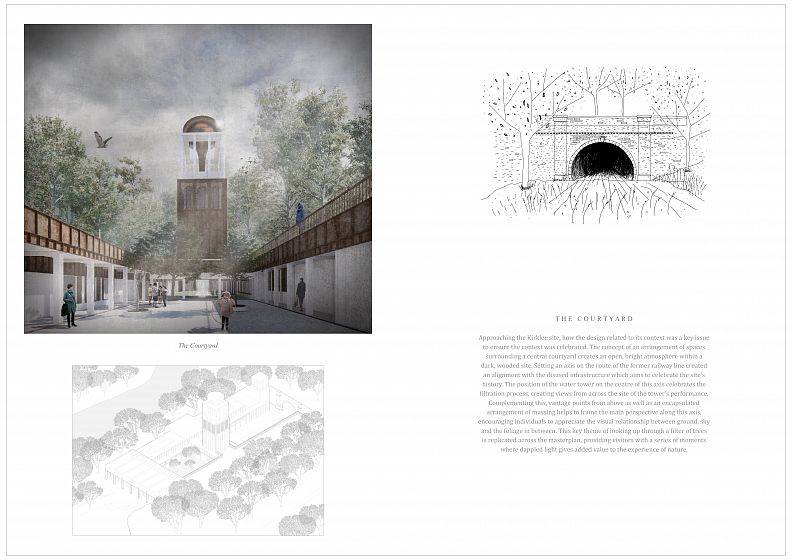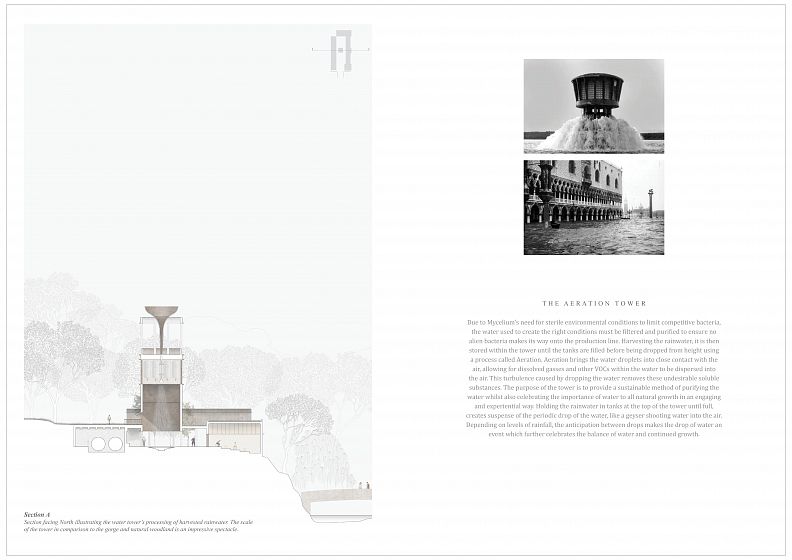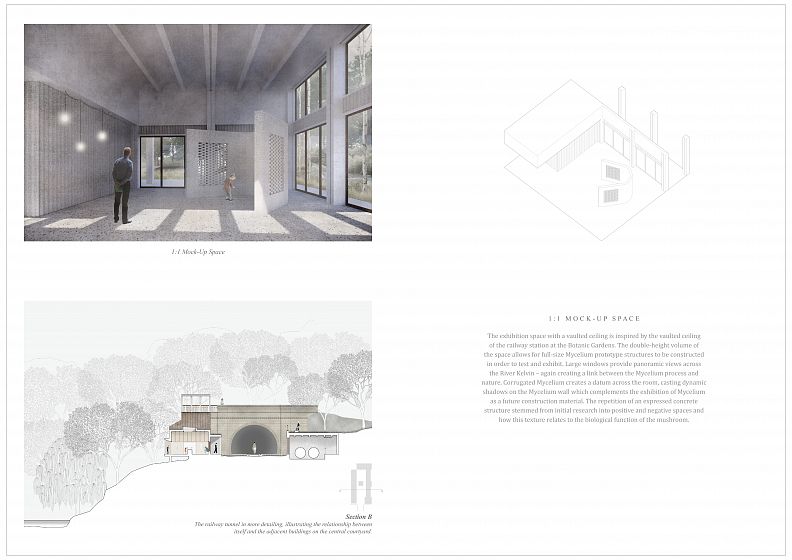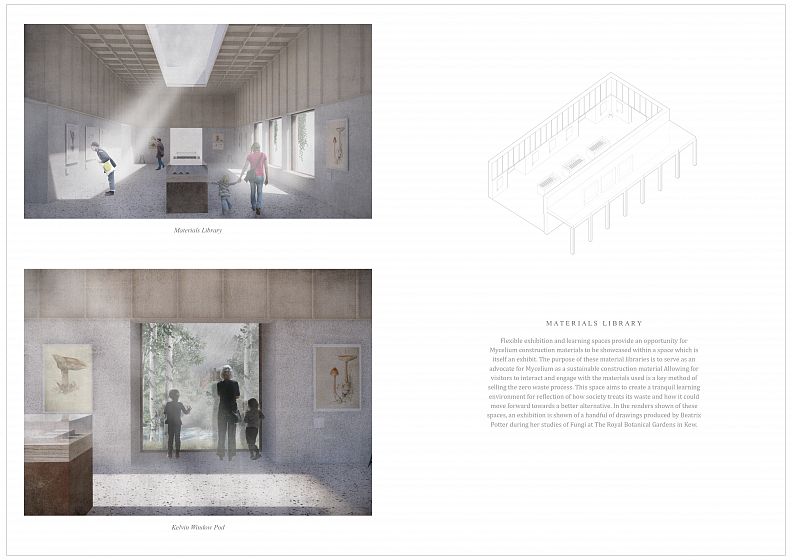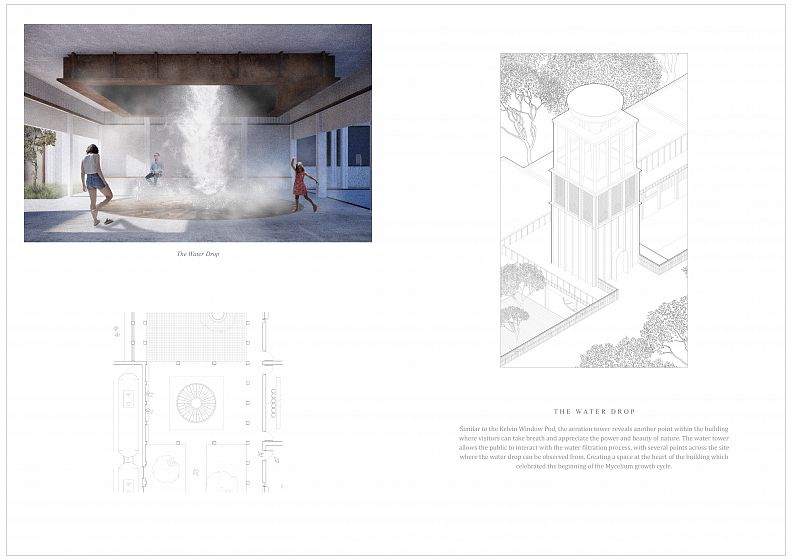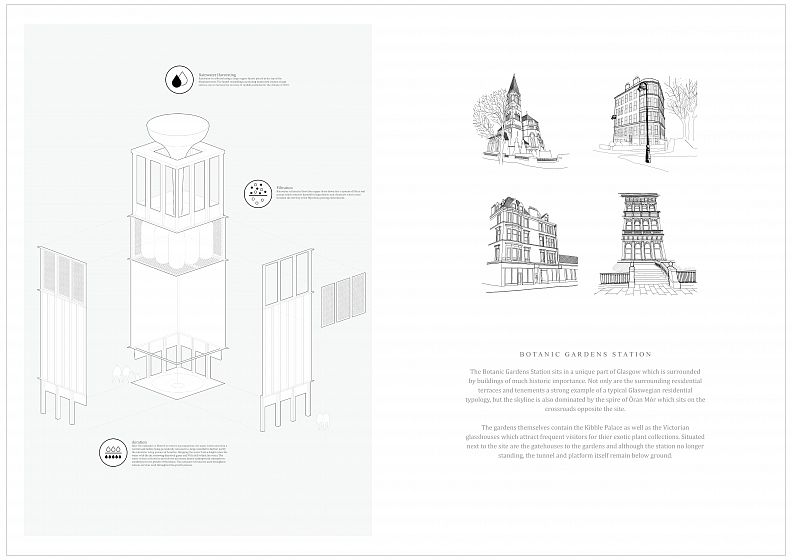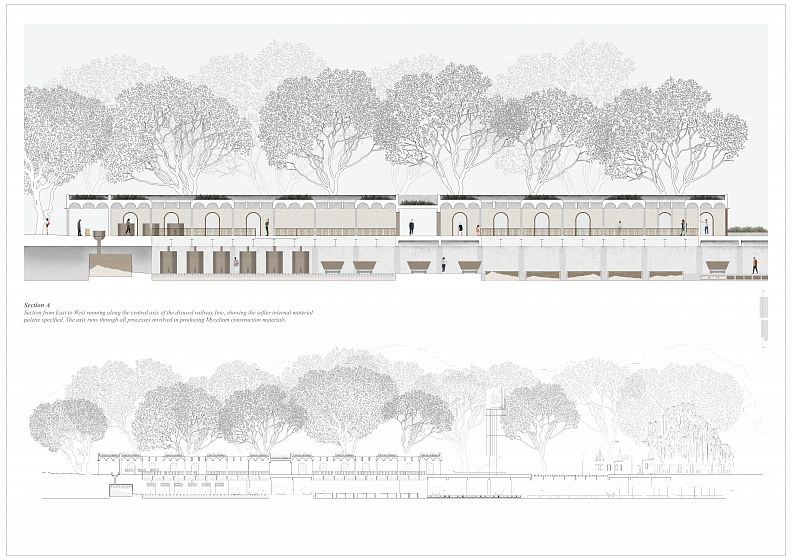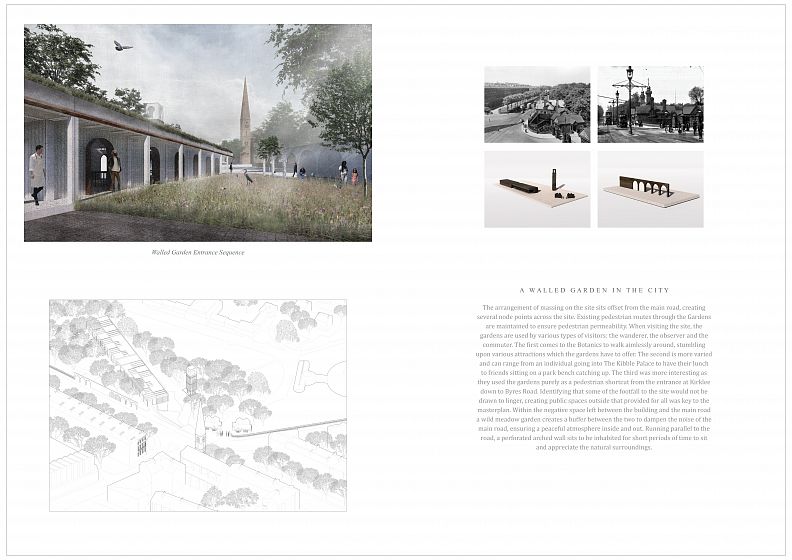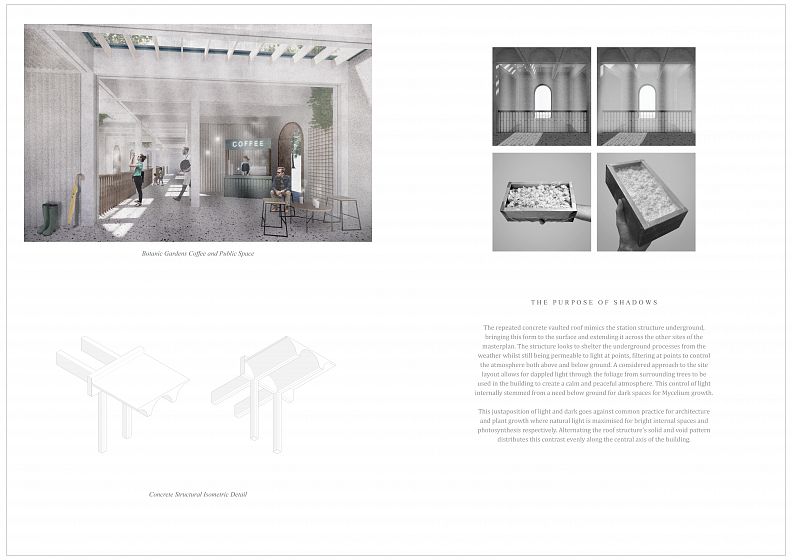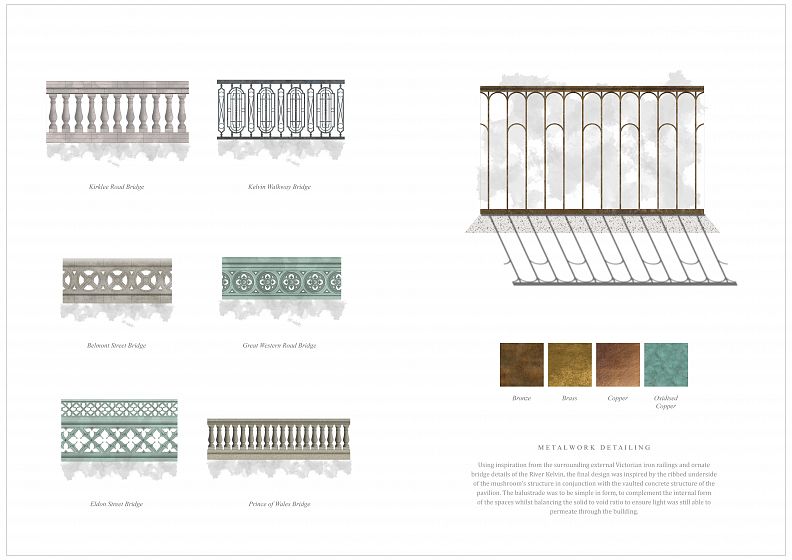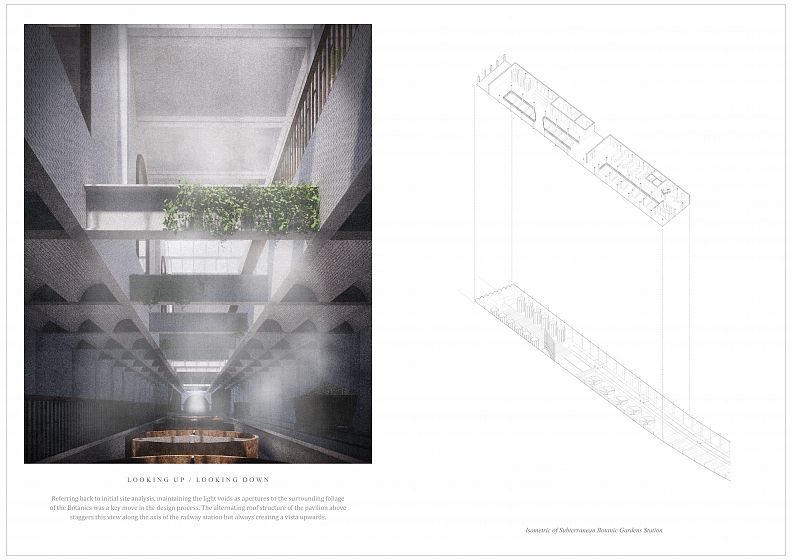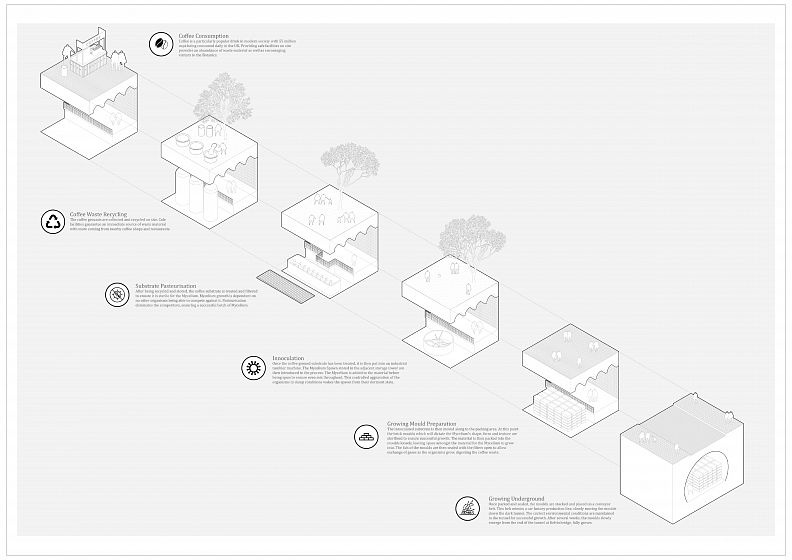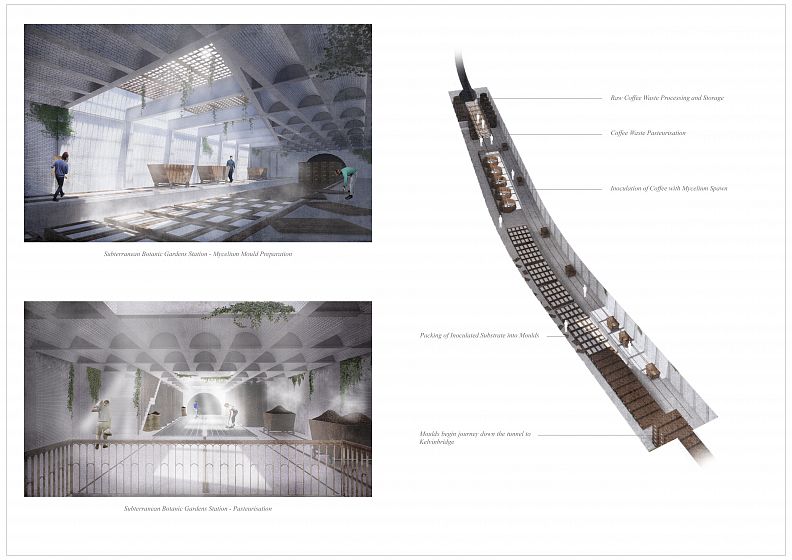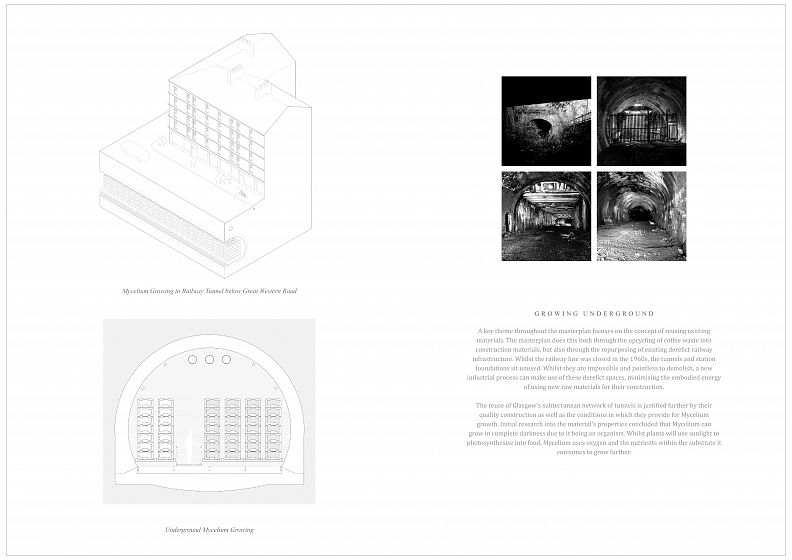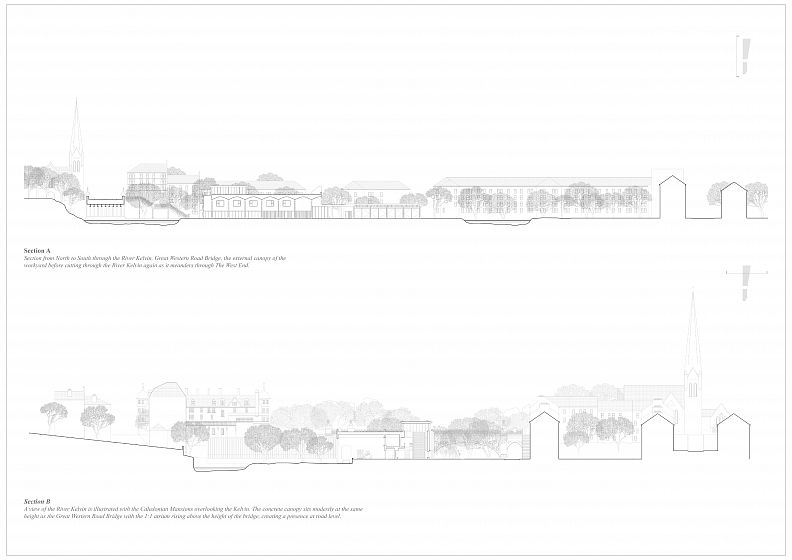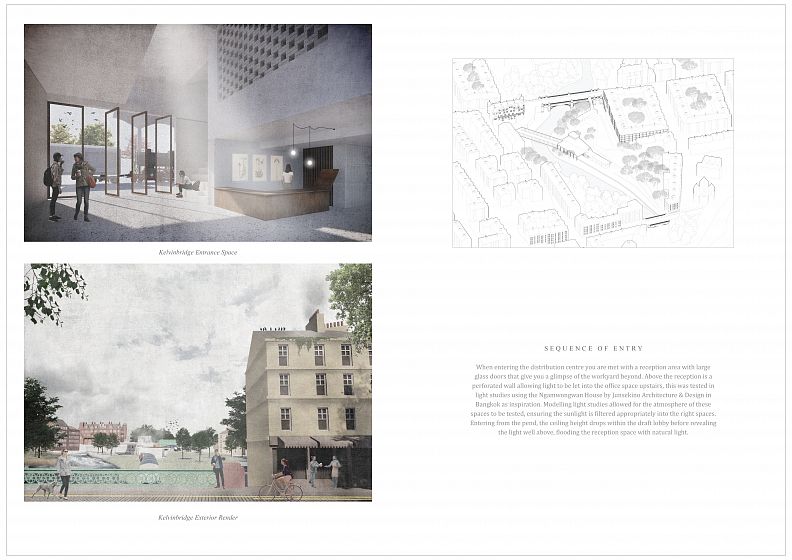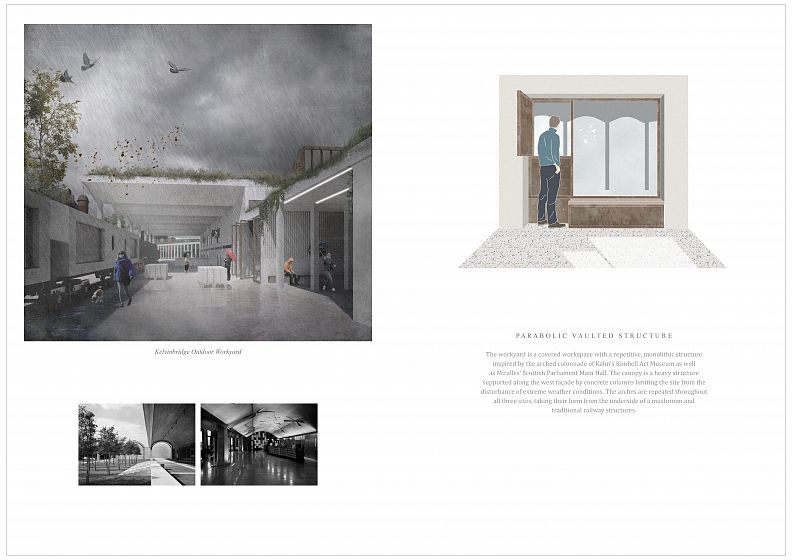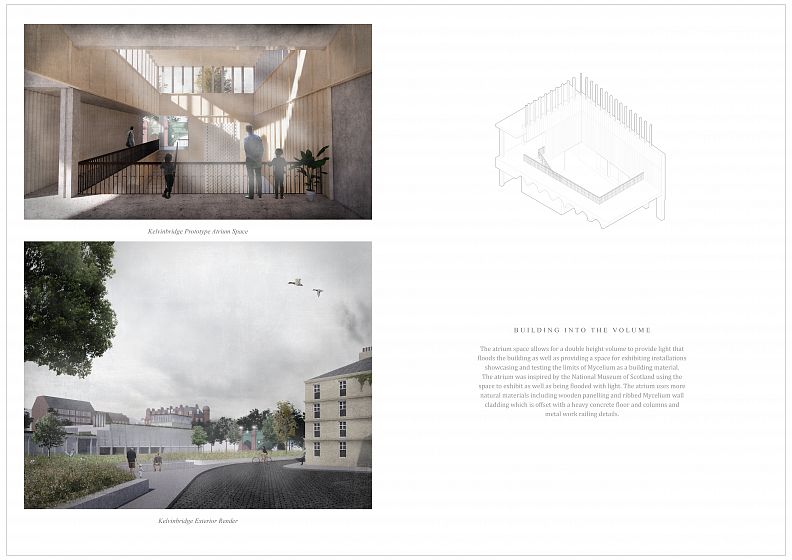Growing Underground

Idea projektu
Please visit issuu for the full project: https://issuu.com/euancampbell96/docs/growing_underground
The proposal’s main theme focused around a central idea of reusing society’s waste as a raw material for creating zero-carbon construction materials. Using Mycelium, the white filament cells which constitute the root structure of fungi, it digests organic and synthetic waste, binding it together into a new construction material. With 66.2 million tonnes of construction waste being produced annually in the UK alone, this solution investigates potential methods of harnessing this superfluous waste as a raw material.
Popis projektu
Located within the abandoned railway tunnels of Glasgow, this project investigates the ongoing crisis of Climate Change, proposing a solution which addresses the environmental impact of our architectural legacy. It does so by redefining the manufacturing process of carbon-rich materials with a carbon neutral alternative.
In 2045, a new industrial process is created using Mycelium and local organic waste to create a fully circular construction material. An abundance of coffee waste in the West End of Glasgow sits as a prime opportunity to reuse a local commercial by product. Recovering and reusing this, it can act as a natural substrate which the Mycelium absorbs and digests as it grows. As the multi-cellular organisms develop, the Mycelium acts as a glue, binding the material into a new construction material. The proposal uses a new model for the sustainable development of construction systems by merging them within a waste cycle where waste can be consumed as a resource.
Repurposing a derelict railway network below the streets of Glasgow, a processing system across three former railway station sites creates a production line, cultivating Mycelium within an urban context. Reusing an existing infrastructure, the environmental impact and embodied energy of the initial construction and ongoing operation of the process is reduced. A zero-carbon, industrial approach which re-assesses the value of local waste as a resource, engages the community in a way that prevents further environmental destruction whilst sustaining a local economy.
Technické informace
The project uses Mycelium construction in conjunction with other sustainable methods to actively reduce the building sector’s environmental impact. A combination of zero carbon, compostable materials and the existing hard-wearing substructure of the railway tunnels, illustrate architecture’s fragile balance between permanence and eventual change. Celebrating the various capabilities that this new building material has, these architectural interventions aim to stand as a monument to where we need to aim in order to avoid the environmental disaster which we are speeding towards.
Testing the Mycelium’s growth cycles, the manufacturing process was established to complement the biological nutrient flows of nature. Growing samples of the material allowed us to understand the growth process as well as the mechanical behaviours which this micro-organism observes as a vehicle for bioremediation. Developing this new building system, the material’s compatibility within a future context was analysed where waste is the genesis for all new construction.
Spoluautoři
Euan Campbell & Alexandra Adams
